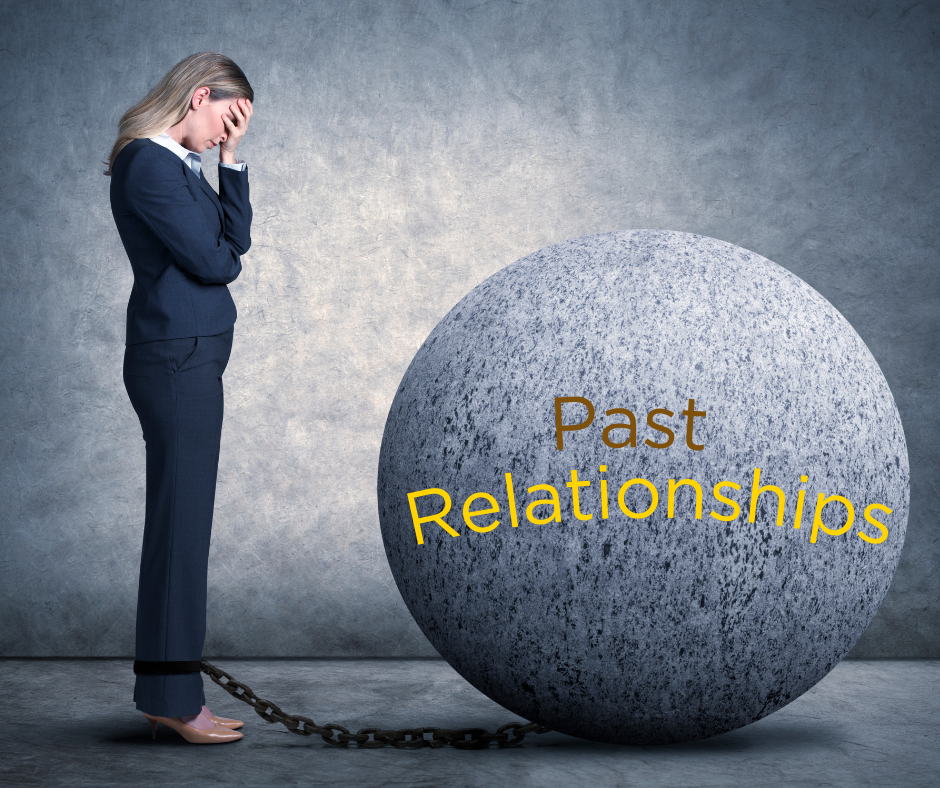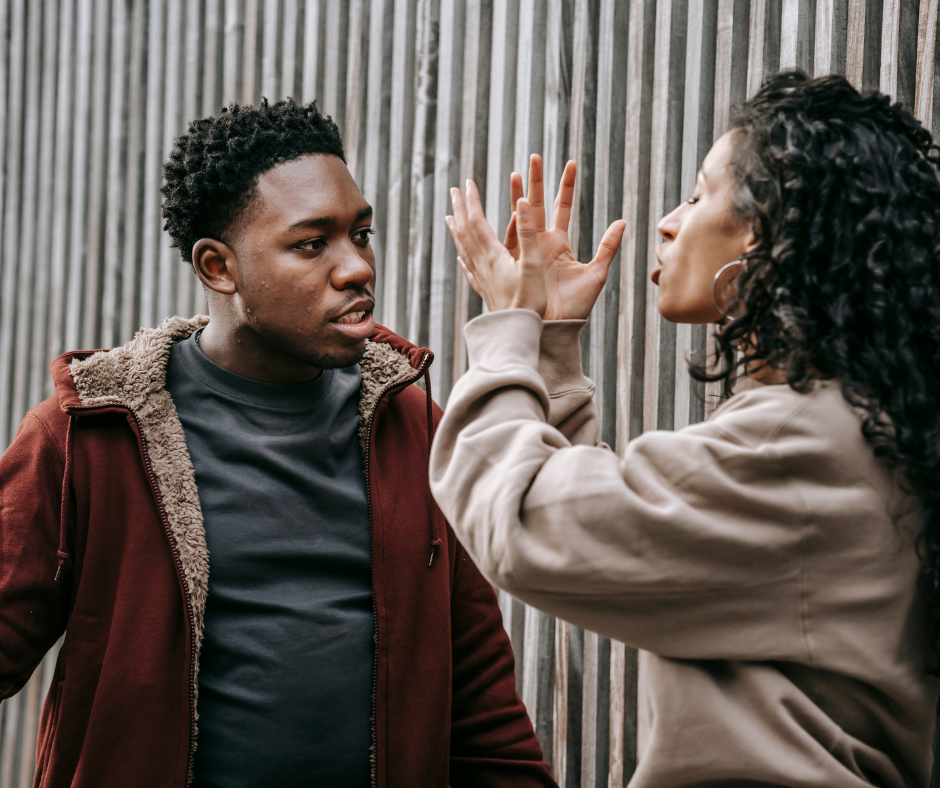Relationships are complex journeys that often trigger a myriad of emotions, and one of the most challenging feelings to navigate is insecurity. While it’s natural for everyone to experience moments of doubt, understanding the specific triggers that can fuel insecurity is crucial for fostering a healthy, thriving relationship. In this blog, we’ll explore 10 common factors that can contribute to feelings of insecurity in a relationship.
1. Communication Breakdown
Inadequate communication or misunderstandings can create a breeding ground for insecurity. Unresolved issues or lack of open dialogue can lead to assumptions, leaving individuals feeling disconnected and unsure about their partner’s intentions.
I’ve seen this in couples many times, where one person is assuming things about their partner, assuming what they are thinking, assuming they know there is a problem, assuming they know what they need to do.
What’s the common saying? Assume makes an ass out of you and me.
This is so true, we never know what our partner is truly thinking and making assumptions causes so many problems.
The best thing you can do is ask. Ask your partner about a situation, or openly talk about how you are feeling about a situation. Make sure this is done openly and honestly when you are both calm and have time to have a conversation. Talking about how you feel about a situation rather than going into a list of what your partner has done wrong means they are less likely to get defensive and the conversation is less likely to escalate into a fight.
2. Past Relationship Baggage
Previous relationship experiences can linger in our minds, influencing how we perceive and approach new relationships. Unresolved issues or trust issues from the past may resurface, causing insecurity in the present.

This is another big one that comes up. I’ve experienced it too. In the first year of being with my husband, I remember after work I called him and he didn’t pick up. I got triggered and my mind automatically went to “Oh, maybe he is talking to another woman”, because my trigger came from my previous relationship where my ex would talk to other women and I never felt secure in that relationship, I felt like I was always waiting for him to cheat.
Now, I had not had one reason to ever think my husband would cheat or talk to other women, so I knew it was my trigger (and having worked on myself a lot, I notice triggers). This meant I didn’t act on it. I went home and saw that he was playing on the PS4 and just hadn’t heard his phone. Totally innocent.
I could have let that trigger take over, rush home angry, and start a fight with my husband, but I didn’t. I noticed the trigger, caught it, stayed calm, realised it was not true and then worked on it later in my own time.
Learning to let go of past relationships and noticing triggers can be incredibly helpful to a healthy relationship. It means you aren’t bringing your past with you, you aren’t accusing your partner of something an ex did.
3. Past Negative Experiences
Past experiences aren’t just relationship related. Negative experiences from your childhood and other areas of your life can also linger in your mind and influence how you perceive your relationship and other people.
Let’s say you grew up in an environment where men treated women badly, you may have a preconceived idea that all men are bad and untrustworthy. Every relationship you attract as an adult might result in this type of man because that is what you are attracting into your energy because you hold that belief.
It can show up in another way, you may attract an amazing, loving, trusting, loyal man, but because you have this belief, you always suspect him of being bad or doing bad things. You don’t give him the trust he gives you. Slowly you sabotage the relationship.
Either way, both are damaging to a relationship. Again you want to work on those past experiences so they aren’t overshadowing your relationship.
4. Fear
Fear shows up in so many ways and can instil clinginess, jealousy, needing constant reassurance, getting controlling, paranoia, anger, playing games, etc.
Fear is a huge category to explore, but it can be fear of moving on, fear of abandonment, fear of being alone, fear of the unknown, fear of rejection, so many different things. I could do a blog purely on fear.
Notice when your fear gets triggered and you aren’t always looking for feeling scared. It could be some of the things I said above. If you get triggered when your partner is busy doing their own things, maybe you have a fear of abandonment. Or if you find you are getting paranoid about your partner’s activities (and there isn’t a reason that’s making you suspicious), check in on yourself and see if you are feeling paranoid due to a past relationship being triggered.
My 5 week Love Unlocked on demand course teaches you how to EAM and that will be very helpful when it comes to working through fears. It gives you a tool to 1. Identify the fear. 2. Release it. 3. Replace it with something positive. I’ll talk about that more below.
5. Mismatched Expectations
Varying expectations regarding the future, commitment level, or the pace of the relationship can breed insecurity. Misaligned goals can lead to feelings of uncertainty about the relationship’s long-term viability.

Having an open conversation about the future, commitment level and pace of the relationship can bring everyone onto the same page. You are both clear on where you stand.
If you have just started dating, this is really important, so both parties are aware of how things are progressing and what to expect. It is important because if it turns out not to be quite right for you, you can make the decision to walk away.
6. Comparison with Others
Social media and societal pressures can amplify insecurities as individuals compare their relationships to idealised standards portrayed online or in the media. This constant comparison can create unrealistic expectations and self-doubt.
Let’s all remember a lot of what we see on social media isn’t the full picture, it is a snippet of a person’s relationship. We don’t see the tough moments, the upsetting moments, the fights, the struggles. We see the good times and the facades.
Therefore, it is important not to compare your relationship to anyone else’s, even friends! Remember every relationship is different.
7. Low Self-Esteem
Individuals with low self-esteem may struggle with feelings of unworthiness in a relationship. They may constantly seek validation from their partner, fearing that they are not good enough or that their partner will find someone better.
This is a really important part of working on yourself to work on. When your self-esteem is low it affects your relationship in many ways. It can make you feel insecure, unsafe and unworthy in that relationship.
When you start raising your self-esteem, you feel more confident, sure of yourself, safe and don’t need that constant validation from your partner. You know you are good enough.
We explore this on the Love Unlock course as it is such an important factor. Some things you can do now is notice how you talk to yourself, are they kind words or pretty harsh? Do you do things that make you feel good? What hobbies do you have? Notice what you are good at. Learn to say ‘no’ to things that don’t feel good.
8. Unclear Boundaries
Unclear or violated boundaries can create a sense of insecurity. It’s essential for individuals to communicate and establish mutually agreed-upon boundaries to ensure both partners feel respected and secure.
I have worked with clients who have expected their partner to just know a boundary they have, but we are all different. Some things will be important for both, some things will be important for just one person. Communicating these boundaries will mean your relationship will be happier and you will both feel more secure in that relationship.
Yes, another topic we cover in Love Unlocked because it is so important.
9. Lack of Emotional Support
Feeling unsupported during times of stress or emotional turmoil can trigger insecurity. Partners need to feel emotionally connected and supported, and a perceived lack of empathy or understanding can lead to insecurity.
Hopefully your partner will be able to pick up when you are feeling stressed or have some emotional turmoil going on, but not always. Communicate if you don’t feel your partner is giving you the emotional support you need.
Stress and emotionally difficult moments can manifest in unobvious ways. You might be angry, annoyed, irritable, shouty, quiet, fed up, etc. Your partner might not know what is going on and so it can be important to talk to them about what is going on with you. I know we all hope our partners can just read us and probably for the most part they can, but there will be times when they can’t and same the other way round.
Talking is key! If you need a hug or to vent, then say it. If your partner loves and cares about you, they will give you that time.

10. Lack of Trust
Trust is the foundation of a healthy relationship. When trust is compromised, whether through dishonesty, infidelity, or other breaches, it can result in profound feelings of insecurity.
Sometimes this break of trust happens in your current relationship, sometimes it is left over from a past relationship.
If it is something that’s happened in this relationship, then seek out coaching or therapy. Couples counselling can be really good to open up and start mending the relationship.
If it is baggage from a previous relationship, then the things we spoke about above will help you work through it. Telling your partner that you are struggling with this and it is from a past relationship can be really helpful so they can support you while you work on yourself.
The relationship won’t work without trust. It needs to be worked on by both parties.
Understanding the factors that contribute to insecurity in a relationship is a crucial step toward building a stronger and more resilient connection. Open communication, trust-building, and addressing past issues can help create an environment where both partners feel secure and valued. By recognising and addressing these triggers, individuals can work together to foster a relationship that thrives on mutual respect, understanding, and support.
I’ve mentioned during this blog about the Love Unlocked on-demand course. This 5 week course gives you the chance to work on yourself, letting go of past relationship baggage, standards and boundaries, your self-esteem and understanding what is important for you in a relationship.
Using the Energy Alignment Method, you will be able to let go of the beliefs and thoughts negatively affecting your relationship or dating if you are single.
This is your time to start clearing your energy to be magnetic to the relationship you
